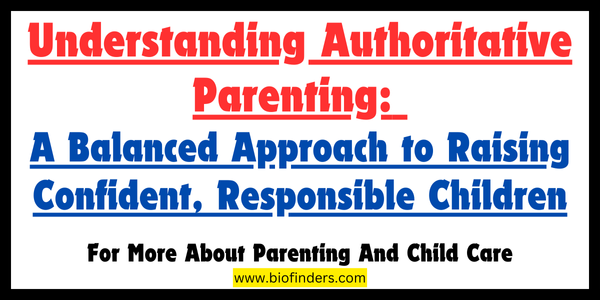Parenting is a constant journey of learning and adaptation. There are countless styles (authoritative parenting) and philosophies, each with its own set of pros and cons. But if you’re looking for a balanced approach that fosters both warmth and discipline, authoritative parenting might be the perfect fit for your family.
This blog delves into the core principles of authoritative parenting, exploring its benefits and offering practical tips for implementation.
Authoritative parenting is characterized by high demands and high responsiveness. High demands refer to setting clear expectations and holding children accountable for their behavior. High responsiveness emphasizes warmth, affection, and open communication. Authoritative parents provide a supportive environment while also fostering independence and responsibility in their children.
Maccoby and Martin (1983)
Parenting Styles: A Spectrum of Approaches
When it comes to parenting styles, there are four main categories:
- Authoritarian: Strict rules and high expectations with little to no room for negotiation.
- Authoritative: Clear expectations balanced with warmth, responsiveness, and open communication.
- Permissive: Few rules and limits, allowing children significant autonomy.
- Uninvolved: Little to no parental guidance or involvement in the child’s life.
Authoritative parenting sits at a sweet spot on this spectrum. It combines the structure and guidance of authoritarian parenting with the warmth and responsiveness of a more permissive approach.
The Cornerstones of Authoritative Parenting:
- Clear Expectations and Limits: Authoritative parents establish clear rules and expectations. These rules are age-appropriate and explained to the child in a way they can understand.
- Warmth and Responsiveness: Authoritative parents cultivate a warm, loving relationship with their children. They are emotionally available, listen attentively, and provide a safe space for open communication.
- Open Communication: Two-way communication is crucial. Authoritative parents encourage their children to express their feelings and opinions, while also clearly communicating their own expectations.
- Positive Reinforcement: Authoritative parents focus on positive reinforcement rather than punishment. They praise good behavior and offer guidance when mistakes are made.
- Reasoning and Problem-Solving: Authoritative parents use reasoning and encourage children to participate in problem-solving when conflicts arise. This helps children develop critical thinking and conflict resolution skills.
Benefits of Authoritative Parenting
Research suggests that authoritative parenting can lead to a range of positive outcomes in children, such as:
- Higher self-esteem: Children raised with authoritative parenting tend to have a strong sense of self-worth and confidence.
- Better emotional regulation: They are better equipped to manage their emotions and navigate challenges.
- Stronger academic performance: These children often excel in school due to their focus and discipline.
- Improved social skills: Authoritative parenting fosters strong social skills by encouraging cooperation and communication.
- Greater responsibility: Children raised with clear expectations learn to take responsibility for their actions.
Implementing Authoritative Parenting: Putting Theory into Practice
Here are some practical tips to help you implement authoritative parenting in your own home:
- Set clear and consistent expectations. Discuss rules with your children and ensure they understand the consequences of breaking them.
- Be warm and responsive. Make time for one-on-one conversations, listen actively, and offer emotional support.
- Provide choices when possible. Empower your children by offering them choices within a set framework.
- Use “I” statements. Instead of accusatory statements, use “I” statements to express your feelings and concerns.
- Focus on solutions. When conflicts arise, work together with your child to find solutions that address everyone’s needs.
Authoritative Parenting: A Journey, Not a Destination
Authoritative parenting is not a one-size-fits-all approach. Every child is unique, and your parenting style will need to adapt as your child grows and develops. There will be bumps along the road, but by focusing on open communication, warmth, and clear expectations, you can foster a nurturing environment that helps your child blossom into a confident, responsible, and well-adjusted adult.
Remember, authoritative parenting is a journey, not a destination. Embrace the challenges, celebrate the successes, and enjoy the incredible experience of raising a child!






Leave a Reply